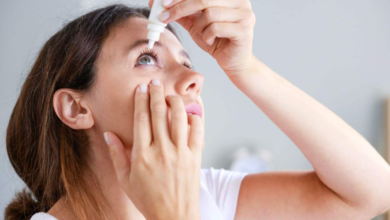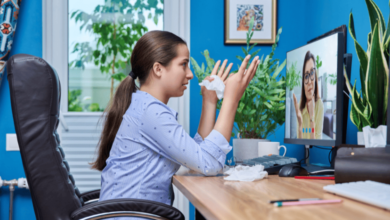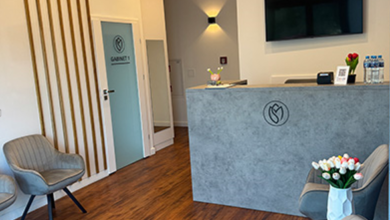Why Massage Therapy is a Natural Way to Manage Anxiety

Anxiety, a feeling of worry, nervousness, or unease, is a common issue many people face in today’s fast-paced world. While traditional treatment methods like therapy and medication are widely known, there are alternative, natural ways to manage anxiety. One such method is massage therapy. It is not just a luxury but a healing practice that can help reduce stress and anxiety levels in a natural and effective manner. In this article, we will explore the numerous benefits of using 코리아밤 therapy as a natural way to manage anxiety.
Understanding Anxiety and Its Impact on Health
Before diving into how massage therapy helps, it’s essential to understand anxiety and its effects on the body and mind. Anxiety can manifest physically and emotionally, often causing a person to feel overwhelmed, tense, and out of control. Chronic anxiety can lead to issues such as:
- Increased heart rate and blood pressure
- Muscle tension
- Sleep disturbances
- Digestive issues
The emotional toll of anxiety can significantly affect a person’s quality of life, leaving them feeling drained and often unable to cope with daily activities. Traditional treatments are effective for many, but integrating natural remedies like massage therapy can provide an additional, complementary solution.
How Massage Therapy Helps Relieve Anxiety
Massage therapy has been used for thousands of years, providing benefits that go beyond relaxation. It stimulates various physical responses in the body that can help mitigate the symptoms of anxiety. Here are some ways massage therapy helps manage anxiety:
1. Reduces Stress Hormones
One of the key benefits of massage therapy is its ability to reduce the production of stress hormones such as cortisol. Studies have shown that regular massage therapy can lower cortisol levels in the body, which in turn helps to reduce feelings of stress and anxiety. By lowering these hormones, massage helps calm the nervous system, making it an excellent natural remedy for anxiety management.
2. Stimulates the Release of Endorphins
Massage therapy also promotes the production of endorphins, the body’s natural mood enhancers. Endorphins are chemicals that act as painkillers and mood lifters. They create a sense of euphoria and well-being, helping to combat the negative feelings caused by anxiety. When your endorphins are released during a massage, you’ll often feel more relaxed and happier.
3. Improves Blood Flow and Oxygen Delivery
Massage improves circulation throughout the body. Better blood flow means that oxygen and essential nutrients reach your muscles and organs more efficiently, which helps to restore balance. This can reduce the physical effects of anxiety, such as muscle tightness and headaches, and provide an overall sense of calm and relaxation.
4. Relieves Muscle Tension
Anxiety often leads to muscle tension, especially in the neck, shoulders, and back. This tension can cause discomfort and further elevate anxiety levels. Through techniques like deep tissue massage or Swedish massage, massage therapy can release this tightness, reducing pain and allowing the body to feel more relaxed. As a result, the person feels less physically stressed, which can significantly alleviate mental anxiety.
5. Promotes Better Sleep
Anxiety often disrupts sleep, leading to a cycle of fatigue and irritability. Massage therapy can promote relaxation and activate the parasympathetic nervous system, which helps prepare the body for rest. By improving sleep quality, massage therapy enables individuals to feel more rejuvenated and less anxious during the day.
6. Enhances Mental Clarity
A calm body often leads to a calm mind. Regular massages can help reduce the clutter and chaos often associated with anxiety. With a sense of mental clarity, individuals can better manage their emotions and tackle stressful situations without becoming overwhelmed.
7. Provides a Sense of Connection and Comfort
Sometimes, anxiety stems from feeling isolated or disconnected from others. Massage therapy provides a safe space for individuals to relax and feel nurtured. The human touch in a therapeutic massage offers comfort and promotes a sense of connection, which can have a grounding effect on mental well-being.
Types of Massage That Help Manage Anxiety
Not all types of massage are equally beneficial for anxiety relief. Some massage styles are particularly effective in reducing stress and anxiety:
1. Swedish Massage
A gentle and relaxing massage, Swedish therapy involves long, smooth strokes to promote relaxation and reduce stress. It’s ideal for those looking to relieve muscle tension and calm their nervous system.
2. Deep Tissue Massage
For individuals who carry a lot of muscle tension, deep tissue massage can be highly beneficial. It targets deeper layers of muscle and fascia to relieve chronic tension, which can be a physical manifestation of anxiety.
3. Aromatherapy Massage
Incorporating essential oils, aromatherapy massage can enhance the benefits of traditional massage by adding a layer of relaxation through scents known to reduce anxiety. Lavender, chamomile, and sandalwood are particularly effective.
4. Hot Stone Massage
Hot stone therapy uses smooth, heated stones placed on the body to promote relaxation and reduce muscle tension. This method is great for calming both the body and mind.
5. Shiatsu Massage
This Japanese technique involves applying finger pressure to specific points on the body. It is excellent for restoring balance, easing stress, and promoting overall health.
Tips for Getting the Most Out of Massage Therapy for Anxiety
If you’re considering using massage therapy to manage anxiety, there are a few things to keep in mind to maximize its benefits:
1. Consistency is Key
To see significant results, it’s important to make massage therapy a regular part of your wellness routine. Aim for at least once a month or bi-weekly sessions to maintain anxiety relief.
2. Communicate with Your Therapist
Always inform your massage therapist about your anxiety and any specific areas of tension you experience. This will help them customize the session to your needs, ensuring you receive the best possible relief.
3. Combine Massage with Other Relaxation Techniques
While massage is an excellent tool for managing anxiety, combining it with other relaxation methods, such as meditation, yoga, or breathing exercises, can provide even greater results.
Is Massage Therapy a Substitute for Traditional Treatment?
While massage therapy is highly effective in managing anxiety, it should not be considered a substitute for professional medical care. If your anxiety is severe or persistent, it’s important to consult a healthcare provider. Massage therapy can complement traditional treatment methods, providing holistic support for your mental health.
Conclusion
Massage therapy is a powerful, natural way to manage anxiety. By reducing stress hormones, increasing endorphins, improving blood flow, and relieving muscle tension, massage offers a variety of benefits that can help you cope with anxiety in a holistic way. Whether you choose Swedish, deep tissue, or aromatherapy massage, regular sessions can help calm both your body and mind, making it an excellent addition to your overall mental health strategy.
FAQs
1. How often should I get a massage to manage anxiety?
For optimal results, aim for a massage once a week or every two weeks. Regular sessions can significantly reduce anxiety levels and provide lasting relief.
2. Can massage therapy cure anxiety?
Massage therapy is not a cure for anxiety but can be an effective tool in managing symptoms and reducing stress. It works best when used alongside other treatments like therapy and medication.
3. Are there any side effects to massage therapy?
Massage is generally safe; however, it may cause temporary soreness, especially if deep pressure is applied. Always inform your therapist about any health conditions.
4. Can massage therapy help with anxiety-related insomnia?
Yes, massage therapy can promote relaxation and improve sleep quality by calming the nervous system, which helps alleviate insomnia related to anxiety.
5. What is the best type of massage for anxiety?
Swedish massage is often recommended for anxiety due to its calming and relaxing effects. However, deep tissue and aromatherapy massages can also be highly effective.
6. Can I get a massage if I’m feeling anxious right before an important event?
Yes, a quick massage before an important event can help reduce anxiety and calm your nerves, especially if you’re experiencing tight muscles or stress.






